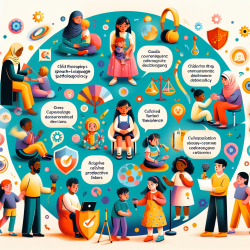Introduction
Child marriage is a significant issue in Ghana, with profound implications for the socio-economic and cultural landscape. The research article titled "Child Marriage in Ghana: Evidence from a Multi-Method Study" provides valuable insights into the predictors and norms surrounding this practice. As practitioners, understanding these findings can enhance our ability to support affected individuals and communities effectively.
Key Findings from the Study
The study reveals that approximately 20.68% of girls in the sample were married as children. Key predictors of child marriage include lack of education, poverty, and entrenched cultural norms. Girls who had never attended school were significantly more likely to marry as children (OR, 3.01). Conversely, those from higher wealth quintiles were less likely to experience child marriage.
Socio-Economic and Cultural Drivers
The research identifies poverty, teenage pregnancy, and cultural practices such as betrothal marriage and the exchange of girls for marriage as primary drivers of child marriage. These factors highlight the complex interplay between socio-economic status and cultural expectations, necessitating targeted interventions.
Implications for Practitioners
Practitioners can leverage these findings to design interventions that address the root causes of child marriage. Key strategies include:
- Promoting education retention for girls to delay marriage and empower them economically.
- Implementing advocacy programs to educate communities on the consequences of child marriage.
- Working with local leaders to challenge and change harmful cultural norms.
- Enhancing access to reproductive health services to reduce teenage pregnancies.
Encouraging Further Research
The study underscores the need for continued research to explore the nuances of child marriage in different regions of Ghana. Practitioners are encouraged to engage in or support research efforts that can inform more effective interventions.
Conclusion
Efforts to curb child marriage in Ghana must be multifaceted, addressing both socio-economic and cultural factors. By implementing data-driven strategies and fostering community engagement, practitioners can contribute to reducing the prevalence of child marriage and improving outcomes for affected children.
To read the original research paper, please follow this link: Child marriage in Ghana: evidence from a multi-method study.










